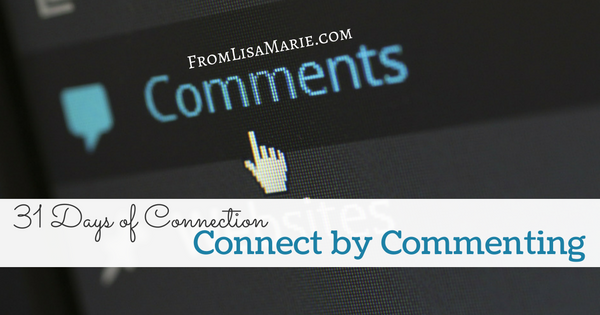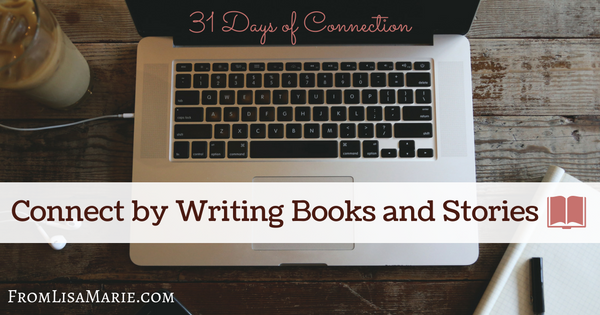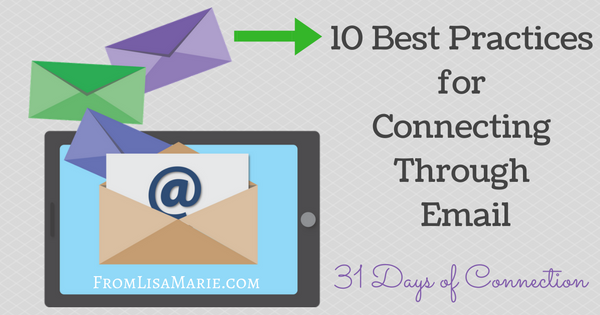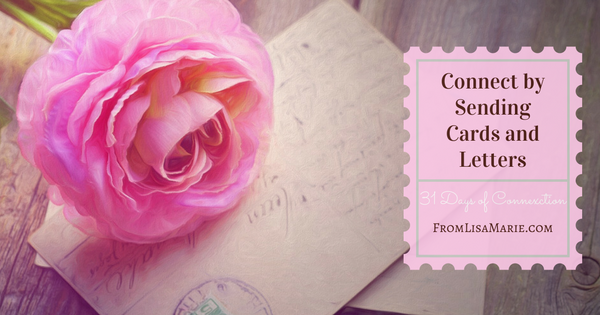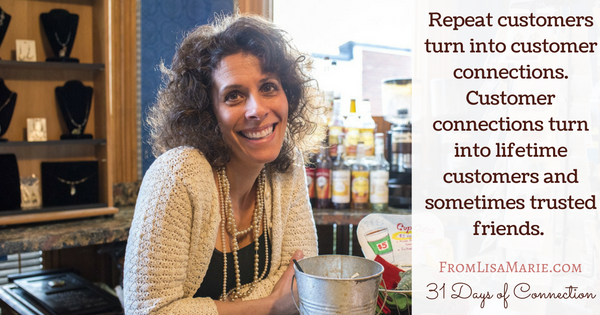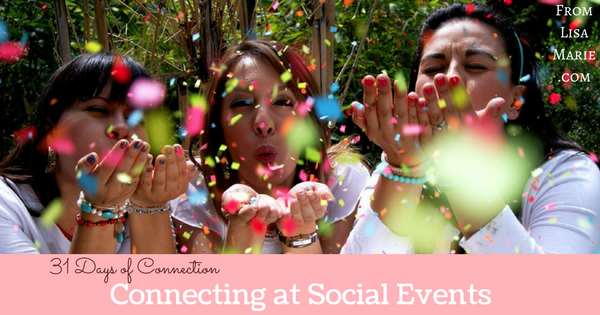Welcome to Day 16 of 31 Days of Connection! To catch the posts you may have missed, click over to Day 1 for the links to each post in the series.
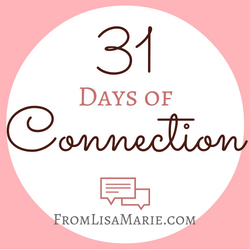
Connect Through Employee Appreciation
We have already discussed why it’s important to connect at work. This post takes it a step further and applies to anybody who holds a position in charge of other employees, though it can also be applied to the coworker relationship. Connecting with employees in the form of employee appreciation shows them that they are valued members of the team, which leads to better working relationships and job satisfaction. A lack of job satisfaction is one of the main reasons that an employee will leave a job or start looking for new opportunities.
The more connected to you and the stronger the relationship an employee has with you, the less likely they are to look for another job. By showing employee appreciation, not only will you have loyal, hard-working employees, but with stronger relationships the work environment will be much more like a group of friends working together and sharing a common vision. And being happier at work means being happier at home as well. It’s win, win…win.

10 Employee Appreciation Ideas
Some of the main ways of showing how much you appreciate an employee’s hard work are by offering a promotion or giving a raise. Many people do not actually have control over whether promotions and raises can be given out at a company, so I’m not including them in the 10 ideas.
I recommend taking a look at the 5 Languages of Appreciation at Work to help figure out which types of appreciation will be the best fit for your specific employees. Try using a mix of these 10 ideas to cover more than one of the languages of appreciation:
1 – Praise by Touch: When in the workplace, only appropriate touching is okay. This might mean using a fist bump, a high five, or a handshake to say congratulations for a job well done. Always pay attention when using these appropriate forms of touch. If you see any signs of it making an employee uncomfortable, make sure not to do it in the future or ask the employee if that’s okay with them to continue.

2 – Tackle a Task: If you have the opportunity to perform a simple but annoying task for an employee so they don’t have to, do it and then let them know you took care of it for them. This could include things like sending a folllowup email, running an errand for the office, making a new batch of coffee, or some other specific work task that doesn’t require their skill or expertise. Be careful not to tackle a task that they really like doing or one that is a main part of their job, as this may lead to them feeling like you have a lack of confidence in their abilities.
3 – Public Praise: When an employee has a great new idea, or does an excellent job on a work assignment, or even when they have accomplished something significant outside of work, take the opportunity to praise them in a public way. This might be verbally in a team meeting or in front of another coworker or boss. This could also be done in an email that copies everybody on the team.
4 – Personal Praise: Take the time to write a personal email or a handwritten note to an employee. Express to them how much you appreciate how hard they have been working and praise them on some specific tasks they have handled. Try to make it motivating and encouraging. Keep the tone of the note professional.
5 – Opportunity to Lead: If the employee is doing well in a particular part of their job, or if you just want to challenge them to keep work interesting, assign either a new project or idea for them to be in charge of. Tell them why you are making them the lead as well as what your expectations are. And then let them run with it. Follow up and check in, offering assistance when necessary, but make sure you are allowing them to be in charge of some of the decisions.
6 – Treat to Lunch: Keep the lunch low-key and you can include more than one employee at a time. This could be a regular occurrence – maybe quarterly with different employees – as a thank you for hard work but also an opportunity to connect outside of the office. Use this opportunity to ask how they feel about the job, to get input and feedback, and to talk about what their goals might be. But also use this time as a way to connect personally by sharing about what things are happening in each other’s lives, even if they are more trivial/fun subjects like television shows and music, etc.

7 – Company Perks: Offering perks to employees can be as inexpensive as you need it to be. Sometimes just sharing a simple perk to say thank you and keep up the good work is all that’s needed. This might be picking up Starbucks coffees on a chilly morning, giving a gift card to a favorite store or restaurant, giving movie passes, offering a discount for a local service or membership, or providing free coffee, tea, soda, etc. and/or snacks at the office. Note reactions to perks so you will get an idea of which ones are more appreciated by your group of employees.
8 – Acknowledging Events: Choose your favorite way to keep track, including setting reminders, of employee birthdays and work anniversaries. You could also acknowledge events as they occur, like weddings and births. If you don’t have the info already, email out a survey and make sure you get these dates from each employee. It’s crucial not to leave anyone out. Even if you are in an office that already celebrates birthdays and/or anniversaries in some way as a group, take the time to send a separate card, an ecard, or a personal email to tell that employee happy birthday or congratulations. It doesn’t have to be anything eloquent – simple is fine. The fact that you took the time and effort to remember these dates personally is what matters.
9 – Christmas Gifts: This may be tricky if you have employees that don’t celebrate Christmas, but even then, most do not mind if you celebrate by giving them all gifts! You may already do something as a group in your office. But do something personal for each of your employees for Christmas, no matter how small. Handmade goodies, gift cards, tickets to an event, or books are some great and simple gift ideas. The sacrifice of your time and a few of your dollars are the real gift.

10 – Time Off: If your employees have worked extra hard on a project or gone above and beyond on their tasks or have even survived a busy season and are in danger of burnout, offer some unexpected time off. This is in addition to granting regular time off requests or holidays off. If you can spare them, tell them they can leave work a couple of hours early on a Friday to begin the weekend sooner or give them a half day off and let them choose when to take it, within a specified time range. This should be paid time off or it won’t really be showing much appreciation.
There are many more ways to show employee appreciation and work on connecting with the people who work for you or who you work with. How many of these have you already done?
Day 16 Daily Connection Challenge:
Find one or more ideas from the list of 10 Employee Appreciation Ideas and use them this week, for one or more employees. These can be people that work for you or coworkers and in a number of different settings like at the office, virtual, volunteer, co-ops, etc. Note the reaction of the employee and whether your relationship with that employee changes for the better.
Thank you for joining me for Day 16 of 31 Days of Connection! Have you experienced somebody showing employee appreciation to you in one or more of these ways? Did it make you feel more connected to that person? Let me know in the comments. See you here again for Day 17!

